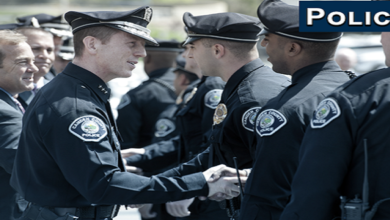What Questions Are Generally Asked In The UPSC Interview?

The Indian Administrative Service, Indian Foreign Service, and Indian Police Service are just a few of the government organizations that the Union Public Service Commission (UPSC) uses to recruit civil service workers.
For those interested in a future in public service, a formal interview is the last component of the UPSC CSE exam pattern. You can prepare for this portion of the exam by reviewing some of the topics you might encounter in the interview.
Table of Contents:
Possibility of Questions Asked
Possibility of Questions Asked
1. Tell Me About Yourself
Not just for civil service exams, but certainly in almost every interview, this is the question that is asked the most frequently. If this question is posed to you, you might want to start by providing a short history of your family, personal details, educational background, and professional endeavors.
When compared to your resume or other information you have already given to the group — the information should be concise and without ambiguities.
2. Why Do You Want To Become IAS?
This is yet another common IAS interview question that applicants must answer. It is meant to highlight the applicant’s objectives for becoming an IAS official and to assess their level of clarity in thinking.
This is a common question, but it is also one of the most significant ones because it gives the panelists a short overview of your passion, goals, and interests, as well as the inspiration behind your decision to enter the civil service up to this point. In order to prepare for this question, it is recommended that aspirants do some research.
3. What Are Your Career Goals?
In order to ascertain whether your job goals might be compatible with the civil service and to gauge how long you might want to work in the civil service, UPSC panelists frequently inquire about your professional aspirations.
Their understanding of your fundamental goals and aspirations for the future is also aided by these inquiries. Include a few professional aspirations that are connected to the civil service and the government agency you want to work for in your response. If you can, include a timeline for achieving your objectives in your goal description. Be specific.
4. What Did You Do To Address Your Mistakes During UPSC Preparation?
Studying and being aware of your errors are essential if you want to do well on the civil service exam. The answer to this query reveals your fortitude and measures your capacity for dealing with difficulties.
The purpose of the panelists’ inquiry is to assess the preemptive steps you take to get the outcomes you seek. Additionally, it enables them to assess your capacity to take responsibility for your errors. Describe what you did to fix your errors so that you didn’t commit them again in your response. Also, mention any lessons you learned from studying for the test.
5. How Has The Civil Service Changed In The Last Three Decades, And What Is The Importance Of Those Changes?
The panelists may also use this question to gauge how well-versed you are in the service you want to enter. This question tests your fundamental knowledge of the civil service.
The background of many government positions must be thoroughly understood by applicants. Include as many noteworthy details as you can in your response while describing what you know about the federal service. To further show your knowledge, mention the effects of specific incidents and how current they are.
6. What is Your Opinion Of The ISRO? and What Are The Advantages Of These?
This question allows the panelists to more accurately evaluate a candidate’s critical thinking skills and gauge how much they already know about the government.
You can give a brief overview of the ISRO’s operations in your response to this query. List some of the reasons why it is essential and give your honest opinion of this organization.
7. Why Was Lata Mangeshkar Called The Queen Of Melody? Why Not Asha Bhosley Or Shreya Ghoshal?
She has a sweet voice that sounds nice in higher octaves because of her innate talent, sir. She has a less impressive voice when she speaks, but it is still a beautiful voice for music.
She also performs a great deal of Ryaaz. She is comparable to Sunidhi Chauhan and Shreya Ghosal, though. She has an even more endearing intonation than Shreya. She can sing high notes more easily than she can, and vice versa for Sunidhi. While she was at her best, some claim she played monopoly.
8. Federation, What Are The Changes In The Last 50 Years, And There Is A Talk Of The Federal Front? What Do You Think About This?
Despite the fact that there is a federal division of responsibilities, Kirthi-Sir, India is a union of states rather than a federation of states. As the party in power at the center and in the states for the first twenty years, Congress has easy control over ties with the states.
However, the non-Congress government was established in more than half of the state after the 1967 elections, which strengthened the notion of the federation. Additionally, sir, there aren’t many national parties represented in the Lok Sabha, despite the fact that the five main states—AP, TN, UP, Bihar, and WB—contribute to the majority of the Lok Sabha, demonstrating the strengthening of the federation.
But, sir, the significance of the Land Boundary Agreement with Bangladesh, which is crucial to the country because of its connectivity to the NE, as well as the recent terrorist assaults and the need for NCTC, are serious concerns. With election reforms and other changes, I believe that political culture will eventually evolve. At that point, leaders with a broad national perspective will replace those with a more limited localized perspective.
Wrapping Up
You could keep asking endless queries from the past, but that is not the only goal of this. Considering that each IAS interview is different, the queries won’t be repeated anyway.
Even if the same topic is asked again, your response and subsequent score will differ. You can easily explore the UPSC exam pattern and crack the exam with ease.
FAQs
How should I prepare for the UPSC interview?
Ans. Make an opinion on contemporary topics, prepare to answer behavioral questions, develop patience and your choice of words, prepare situational questions, and give mock interviews.
What are UPSC interviews like?
Ans. When your turn arrives, one of the staff members will call out your name. Then another staff member will take you to the room where the panelists will sit. There are usually 5-6 panelists who take an interview of 20-30 minutes.





